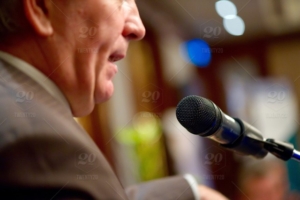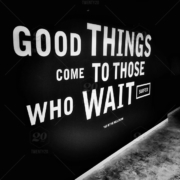How a slogan made me buy something I don’t even like (and what it means for your business)
I enjoy a pint of beer, particularly real ale. My favourite at the moment is Ghost Ship from Adnams. Bengal Lancer from Fullers is another lip-smackingly good beer.
What exactly has this got to do with marketing?
It is this:
I, a real ale lover who hates mass-produced lager, walked into a pub a few years back and bought a pint of Stella Artois, which is about as mass-produced as you can get. It’s too fizzy, too strong and has an odd chemical tang reminiscent of paint stripper
So why did I buy it? Because that famous slogan from the truly excellent Stella ads (you remember – the black and white ones where a thirsty Frenchman asks for ‘un Stella Artois s’il vous plait’) chimed in my head as I walked up to the bar:
‘Reassuringly Expensive’
If it was ‘reassuringly expensive’ then maybe, I thought, I was being too hard on Stella. Perhaps I was missing something and all the love, care and attention those Belgians put into brewing it actually produced a beer better than I remembered?
I ordered a pint – it was disgusting. Yet that slogan made me try it.
 It works because it is honest about the cost of the product and, even better, makes a virtue out of it. It says ‘hey, I’m delicious, I’m worth the cost – better pay a bit more than suffer that cheap muck next to me.’
It works because it is honest about the cost of the product and, even better, makes a virtue out of it. It says ‘hey, I’m delicious, I’m worth the cost – better pay a bit more than suffer that cheap muck next to me.’
And, I might add, many people do find it delicious and well worth the extra cost. It’s just not to my taste.
Yet that slogan made me give it another try. A slogan that makes you buy something you know you don’t like is surely genius.
The lesson to learn from those clever Stella marketers is that a slogan is there to sell your brand. For that to happen it needs to say something both honest and appealing about your product or service.
Yet most slogans fail in this seemingly simple task, with big businesses the worst culprits. Here are a few examples of big-brand slogans that fail horribly:
Das Auto – VW (why they changed from ‘If Only Everything In Life Was As Reliable As A Volkswagen’ I’ll never know.)
It Runs Deep – Jagermeister (this doesn’t even make sense)
Bringing Vitality To Life – Unilever (Given that vitality simply means the ability to live, this is literally meaningless)
These say absolutely nothing useful or beneficial about the brand in question, yet this type of thing is plastered across marketing communications everywhere.
Contrast this with one of my favourite slogans, which I saw on the side of a bakery whilst on holiday a few years ago:
‘Baking The Best Buns In Town Since 1910’.
Now that’s a great slogan – simple, snappy and to the point. Crucially it qualifiesits boast, as the fact they’ve been baking buns since 1910 means they must be good. (It certainly worked on me – I went straight in and bought a delicious Chelsea bun.)
So, if you have a slogan that says nothing about the benefits of your service or product, then it needs to go. If you are going to have a slogan (and who says you need one?) make sure it actually sells your business – that’s what it’s there for.
About the author: Martin Sayers
![]()
Martin Sayers is a UK copywriter and owner of copywriting agencyMSCopy. You can get free marketing advice from Martin direct to your inbox by signing up to the MSCopy monthly marketing tips.



